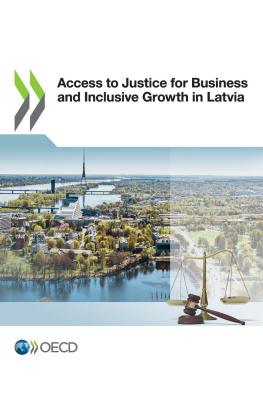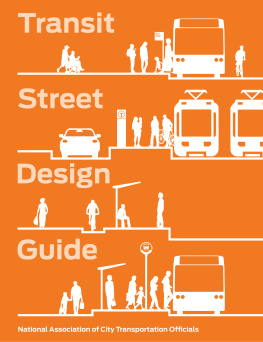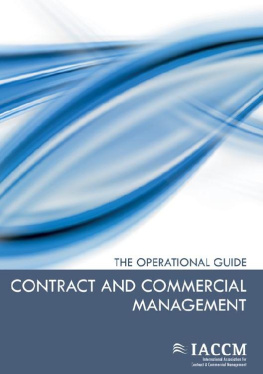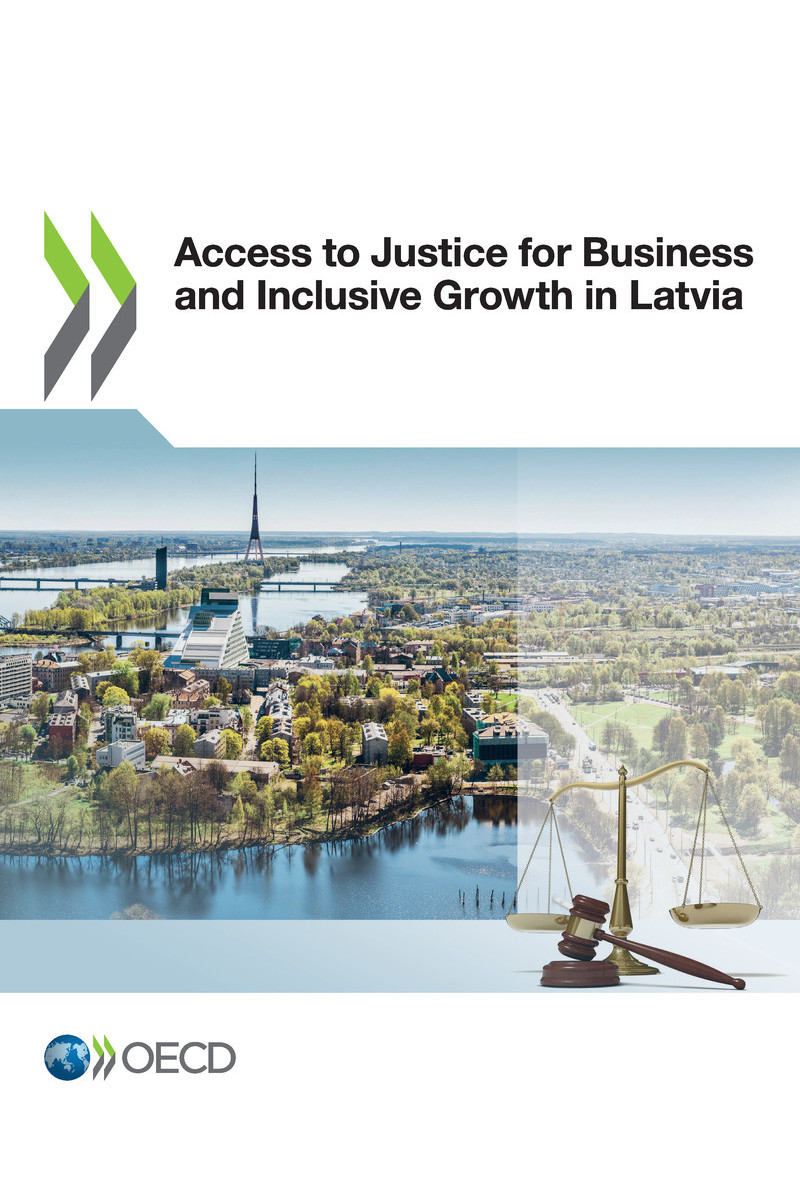Metadata, Legal and Rights
ISBN: 978-92-64-30340-9 (print) - 978-92-64-30341-6 (pdf) - 978-92-64-30702-5 (HTML) - 978-92-64-30701-8 (epub)
DOI: https://doi.org/10.1787/9789264303416-en
This work is published under the responsibility of the Secretary-General of the OECD. The opinions expressed and arguments employed herein do not necessarily reflect the official views of OECD member countries.
This document, as well as any data and any map included herein, are without prejudice to the status of or sovereignty over any territory, to the delimitation of international frontiers and boundaries and to the name of any territory, city or area.
The statistical data for Israel are supplied by and under the responsibility of the relevant Israeli authorities. The use of such data by the OECD is without prejudice to the status of the Golan Heights, East Jerusalem and Israeli settlements in the West Bank under the terms of international law.
Photo credits: Cover Alex Tihonovs/Shutterstock.com.
Corrigenda to OECD publications may be found on line at: www.oecd.org/publishing/corrigenda .
OECD 2018
You can copy, download or print OECD content for your own use, and you can include excerpts from OECD publications, databases and multimedia products in your own documents, presentations, blogs, websites and teaching materials, provided that suitable acknowledgement of OECD as source and copyright owner is given. All requests for public or commercial use and translation rights should be submitted to .
Foreword
As one of Europes fastest-growing economies, Latvia recognises the importance of delivering effective legal and justice services to citizens and businesses to foster inclusive growth.
Despite the significant socio-economic challenges the country faced during the 2008-10 economic recession, Latvia made remarkable progress in the justice sector by implementing legal and structural reforms that create a climate that is conducive to doing business and building trust in public institutions. The country joins the trend among OECD countries of adopting a broader strategy to reinforce the justice system and public services based on user needs, thereby stimulating economic development and well-being. This trend entails more business-friendly administrations and lower administrative burdens. In pursuing administrative modernisation and simplification, Latvia is focused on making infrastructure responsive to business needs through more efficient and accessible public services and dispute resolution mechanisms.
Sustaining these efforts will be crucial to achieving Latvias objectives in terms of sustainable development and economic growth.
Over the past twenty years, in an effort to strengthen the rule of law and the institutional foundations of economic development, policy makers and researchers alike have drawn considerable attention to the performance of the justice sector. Indeed, effective access to justice is increasingly seen as a key condition for creating a positive business and investment climate as well as a compelling means of tackling inequality. In this context, the OECD work on access to legal and justice services supports member and partner countries in designing and delivering responsive justice and legal services. This work also helps countries meet their commitments under the 2030 Agenda for Sustainable Development and implement the Inclusive Growth Agenda.
This report highlights not only the multiple strengths of Latvias justice system, its legal and regulatory framework for commercial activities and service delivery for business, but also associated challenges. It provides recommendations to help the country realize its ambitions.
The report is also a testament to the Ministry of Justices commendable consultation culture. During the consultations, stakeholders expressed their satisfaction with the openness of Latvian state institutions to consider their concerns. The assessment and recommendations presented here are based on a comprehensive review carried out by the OECD Secretariat as part of Latvias accession process in 2014 as well as up-to-date information collected during fact-finding missions in June and October 2017. In addition, an online survey among businesses operating in Latvia was carried out in 2017. Final stakeholder consultations were conducted in March 2018 to validate the preliminary findings of this report.
We look forward to continue supporting Latvia on this path and to develop a truly accessible and effective justice system for Latvian citizens and businesses.
Marcos Bonturi
Director
OECD Public Governance Directorate
Acknowledgements
The OECD wishes to express its sincere gratitude for the generous financial and in-kind support of the Court Administration of the Republic of Latvia.
This report is part of the OECD work on Equal Access to Justice of the OECD Public Governance Directorate, under the direction of Marcos Bonturi. The work and report were led by Tatyana Teplova, Head of Unit, Governance for Gender and Inclusiveness, OECD Public Governance Directorate, under the guidance of Martin Forst, Head of Division, Governance Reviews and Partnerships, Daniel Trnka, Senior Policy Analyst and Nick Malyshev, Head of Division, Regulatory Policy Division. Principal authors of the report are Chloe Lelievre and Martyna Wanat, Policy Analysts, OECD Public Governance Directorate, Felix Steffek, University Lecturer, Faculty of Law; LLM Deputy Director; Deputy Director of the Centre for Corporate and Commercial Law; Director of Studies, Newnham College, University of Cambridge; Lorenzo Allio and Delia Rodrigo, Regulatory Reform Experts and Directors, allio|rodrigoconsulting.
Critical input was provided by Daniel Blume, OECD Directorate for Financial and Corporate Affairs.
The report was peer-reviewed and benefitted from further inputs provided by Tambet Artma, Head of Business Register Division and Ktlin Kattai, Head of Client and International Relations, Centre of Registers and Information Systems -RIK (Estonia); Bettina Meincke, Judge, Higher Regional Court of Cologne (Germany) and Farhaz Khan, Barrister, Outer Temple Chambers (United Kingdom).
The report also benefited from contributions by David Fauqui, lawyer, Barcelona (Spain).
A special appreciation is due to the governmental stakeholders including Deputy State Secretary of Justice Laila Medina, Edvns Balevics, Anna Skrjabina and Lauma Legzdia from Court Administration, Baiba Lielkalne from the Ministry of Justice, Guna Paidere from the Enterprise Registry, the State Land Service, Land Registry offices, the Patent Office, the Ministry of Economy and the Ministry of Environmental Protection and Regional Development.
This report is the result of contributions from many businesses and other stakeholders who participated in the survey and interviews. The overall survey on access to business justice services was disseminated by the Court Administration and promoted through various governmental and business websites, including the Ministry of Economic, Investment and Development Agency of Latvia (LIAA), Enterprise Register, Patent Office; Latvian Chamber of Commerce and Industry and the Employers Confederation of Latvia, Association of Latvian Commercial Banks, the Foreign Investors Council in Latvia (FICIL), the Latvian Start-up Association, Latvian Information and communications technology association (LIKTA), Certified Mediators Council and others. Interviews with business stakeholders during two fact-finding missions (July and October 2017), information received from Latvia and desk research also contributed to the findings of this report.

















